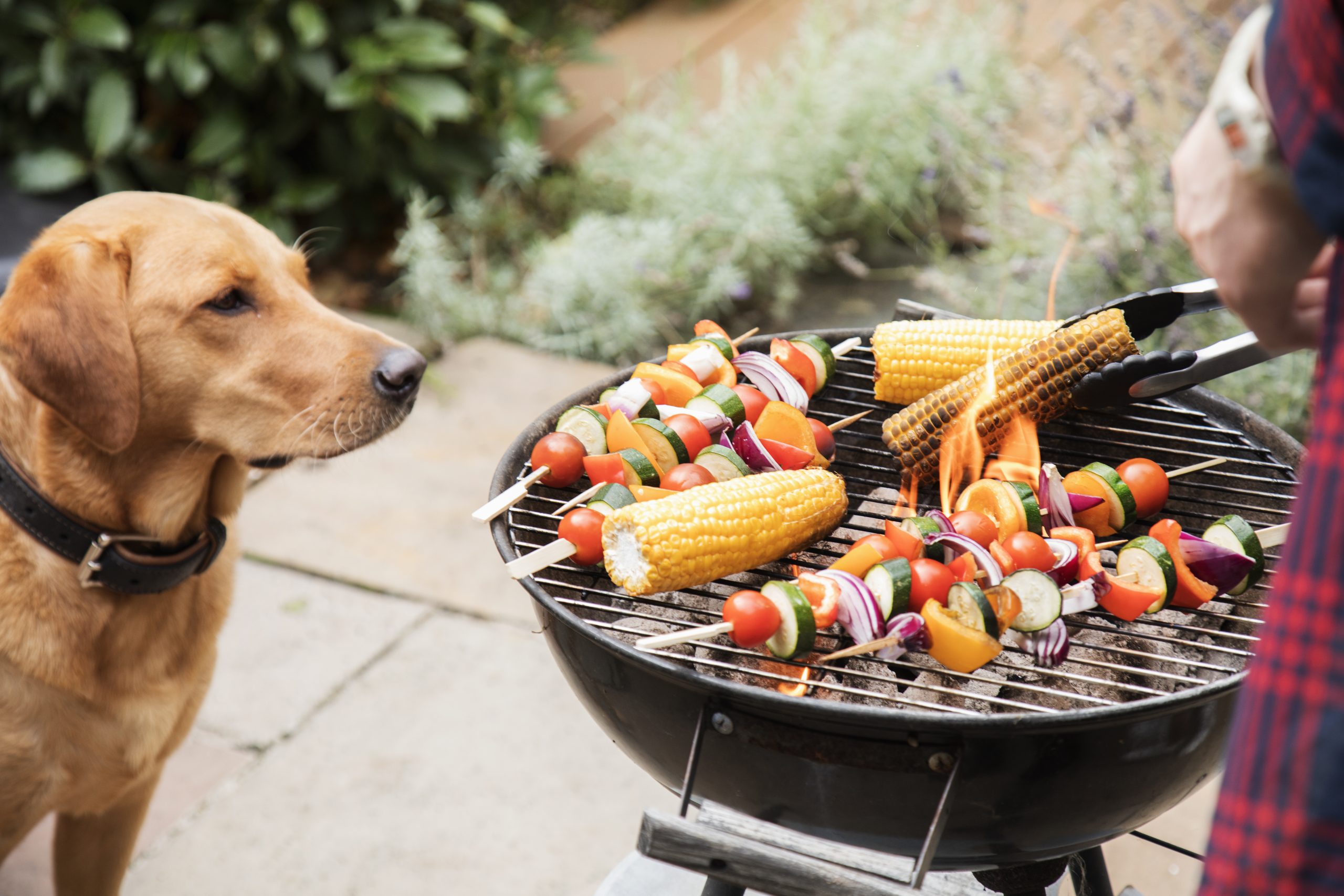Why you should NEVER share BBQ food with cats or dogs
It’s essential you don’t let cats or dogs eat BBQ food. As, despite it being hugely tempting to share your sausages or burgers, even BBQ scraps can do potential harm to furry family members.


Parenting advice, hot topics, best buys and family finance tips delivered straight to your inbox.
You are now subscribed
Your newsletter sign-up was successful
It’s essential you don’t let cats or dogs eat BBQ food. As, despite it being hugely tempting to share your sausages or burgers, even BBQ scraps can do potential harm to furry family members.
“While many of us love a barbecue, it’s important that people don’t leave food unattended or let pets eat BBQ food or scraps, even if they look like they’re enjoying it", says Leticia Fidalgo Buron, vet and technical manager at Webbox. "And, there are several BBQ foods that you never should feed your pet - these include corn on the cob, kebab sticks, chocolate, grapes, raisins, ribs and bones and onions.”
Leticia added, that while it may be ok to share some food items (if carefully cooked and deboned), like chicken, turkey, salmon, some vegetables and certain types of cheese (such as cheddar, gouda and Swiss), you pay particular attention to foods cooke don the Bbq for the following reasons:
1. Saltly food can lave your pets dangerously dehydrated
Salt is not just bad for humans, it can also be extremely dangerous for animals. “The high salt levels in most barbecue foods make pets very thirsty,” says Leticia. “And it can, in serious cases, cause high temperatures and even seizures.”
2. Incorrectly cooked food is dangerous to pets
Ever had food poisoning from uncooked meat? It can have the same effect on your pet, too. “Barbecuing often does not properly cook the meat all the way through, meaning animals can get all kinds of nasty bacteria from the raw meat, including salmonella and listeria,” says Leticia. “And, at the very least, this can cause some digestive upset, such as diarrhoea or vomiting. It can sometimes lead to something even more serious.”
3. Bad bones could cause pets to choke
It’s a common misconception that you can feed dogs bones. “In fact, this is highly dangerous,” says Leticia. “Every year, I see hundreds of cases of dogs with severe gastrointestinal problems or internal damage. This is after owners have given them the small T-Bones from a steak, thinking it will not be an issue. Bones, especially chicken bones, can get stuck in their intestines and stomach. This can cause all kinds of internal damage or can cause the dog to choke if it gets stuck in their oesophagus.”

4. Letting your pets eat BBQ food could cause cancer
“The carbonisation on the outside of burnt meat can cause vomiting or other stomach upset for our pets, with some experts citing it as a cause of cancer,” says Leticia.
Parenting advice, hot topics, best buys and family finance tips delivered straight to your inbox.
TOP TIP: The best technique to stop cats and dogs eating harmful BBQ food is is distraction. “A dog or cat treat, such as Webbox, are a tasty accompaniment to barbecues,” says Leticia. “A treat is great for distracting pets from what’s happening on the grill, helping to stop them begging for more.”
What to do if pets eat BBQ food and it's an emergency
“Signs a dog or cat owner need to look out for include agitation or pain, sluggishness, diarrhoea and vomiting. Plus, an inability to go for walks or other normal behaviours, collapse or difficulty walking, and difficulty eating or drinking,” says Leticia. “If your pet is visibly distressed, call your vet ASAP. In the meantime, immediately get them away from the toxin so they can’t ingest any more of it. If you have any other animals, secure them in a separate space so they can’t come into contact with the toxin or with your pet.”

Faye M Smith is a Senior Health And Lifestyle writer working across Woman & Home, Feel Good You, Woman’s Own and Woman magazine. Having gained an NCTJ postgraduate diploma, Faye has worked for 15 years in journalism, covering a range of lifestyle topics for companies including the BBC, Press Association, News UK and Hachette.